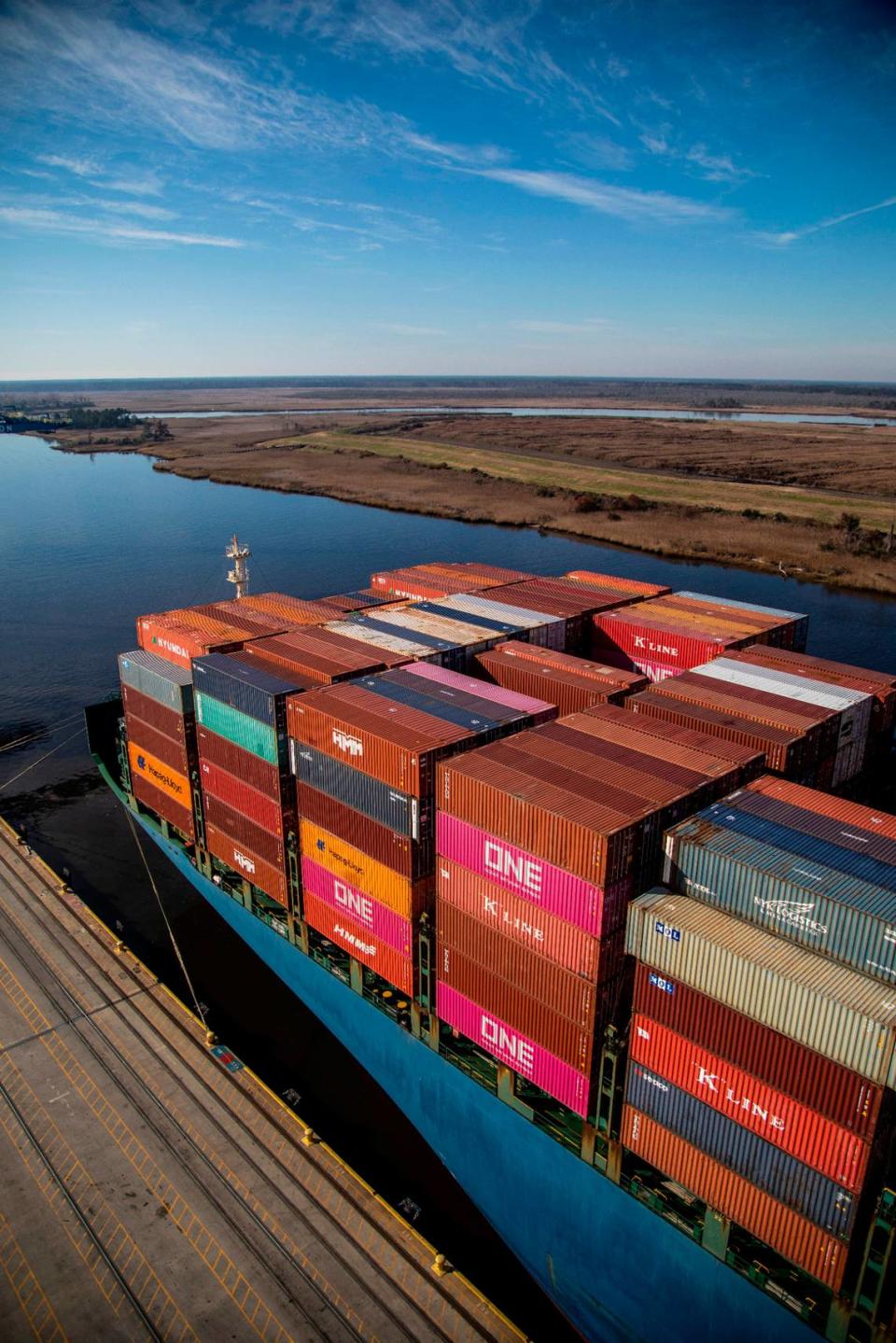Could North Carolina ports receive ships rerouted by Baltimore bridge collapse?
North Carolina’s ports could receive some of the shipping traffic that is unable to reach the Port of Baltimore due to Tuesday’s collapse of a vital bridge over a key shipping lane, experts said.
Traffic in and out of the Port of Baltimore was brought to a halt Tuesday morning when a cargo ship struck the Francis Scott Key Bridge, collapsing the 1.6-mile span that crossed the Patapsco River. Debris from the collapse is blocking the shipping channel, with some authorities saying the Port of Baltimore, the nation’s 17th largest, is likely to be closed “indefinitely.”
“Customers are now evaluating their supply chain options and NC Ports stands ready to assist and support the larger supply chain network as needed,” Brian Clark, the N.C. State Ports Authority’s executive director, wrote in a statement.
North Carolina’s ports, particularly the Port of Wilmington, are able to take some of the shipments originally bound for Baltimore, experts said.
Wilmington could be particularly well-positioned to take wood and steel that would typically head to Baltimore, Rob Handfield, N.C. State University’s Bank of America Distinguished Professor of Supply Chain Management, told The News & Observer.
Handfield, who recently conducted an analysis of the port’s in-bound products, said the four largest bulk commodities Wilmington handles are pulp wood, sawed wood like lumber, stainless steel rolls and iron bars.
“There definitely is a likelihood that they might see more traffic at Wilmington,” Handfield said.
North Carolina and New Jersey’s ports are likely destinations for some traffic that would otherwise head to Baltimore, Georgios Hatzimanolis, head of global communications for Kpler, a trade analysis company, told The New York Times on Tuesday.

The Port of Baltimore handles 39% of Northeast ports’ wood imports and 20% of their steel and aluminum, Chris Rogers, S&P Global Market intelligence’s head of supply chain research, said in an email to The N&O.
Some of the traffic originally bound for Baltimore is likely headed to ports in Delaware and Philadelphia, Rogers wrote. And the Port of Virginia in Norfolk reported Tuesday that it was accepting ships diverted from Baltimore.
The Port of Baltimore is one of the nation’s largest handlers of cars and trucks, Rogers told The News & Observer. That traffic is unlikely to come to North Carolina, which doesn’t handle vehicles at either of its ports.
North Carolina’s biggest ports
North Carolina has two deep-water ports, in Morehead City and Wilmington. Neither requires ships to pass under a bridge to reach them.
The Port of Wilmington’s website touts it status as “one of few Southern shipping ports with readily available berths and storage areas for containers and general cargo.”
Ships approaching Wilmington come up the Cape Fear River, reaching the port about a mile south of the Cape Fear Memorial Bridge.
“We, along with our federal and state agency partners, are committed to continually evaluating the safe movement of goods and vessels in and out of our facilities,” Clark said in a statement.
The Francis Scott Key Bridge was a 1.6-mile bridge that formed a key part of Baltimore’s beltway. The 984-foot-long cargo ship, the Dali, struck one of its support pillars Tuesday morning.
Emergency radio traffic shows that the ship reported losing steering and power shortly before the collision, and video of the incident appears to show lights on the ship flickering and dark smoke coming from it shortly before it struck the pillar.
Law enforcement rushed to close Maryland Route 695 on either side of the span, but a construction crew was working to fill potholes on top of the bridge.
Six workers remained unaccounted for, Maryland Transportation Secretary Paul Wiedefeld said Tuesday.

